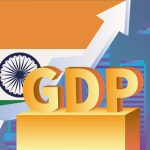Clashes between Israel and Hezbollah raise the risk of a full-blown war in the Middle East as a Gaza ceasefire remains elusive. UN Under-Secretary-General for Peace Operations, Jean-Pierre Lacroix, emphasized the need for de-escalation amid ongoing violence. The situation in Gaza, along with attacks by Iranian-backed militias in various regions, contributes to a high risk of regional escalation. The recent killing of a senior Hamas political official in Tehran has further heightened tensions, prompting concerns of retaliatory actions from Iran.
The tense situation in the Middle East was exacerbated by Israeli air strikes targeting Iranian officials in Damascus and subsequent attacks on Israeli territory by Iran. The US has reinforced its military presence in the region following these escalations. Regarding future prospects for peace in Gaza, talk of a potential peacekeeping mission remains premature. Lacroix stresses the importance of gaining approval from all parties involved before establishing any third-party presence in the conflict.
Negotiations for a long-term ceasefire agreement in Gaza, facilitated by the US with the help of Qatar and Egypt, have hit a deadlock. While Israel has agreed to temporary pauses in the fighting for a polio vaccination campaign, a complete cessation of hostilities is seen as crucial to prevent the conflict from spreading further in the region. The UN is calling on the European Union to continue applying diplomatic pressure in the region to help facilitate peace talks and reduce tensions.
Lacroix highlighted the importance of a total ceasefire in Gaza to minimize the risk of broader conflict in the Middle East. He emphasized the need for political support from EU member states in addition to military contributions to peacekeeping operations. The EU, along with other powers, is urging for a peaceful resolution to the conflict and seeking to address the humanitarian crisis in Gaza through initiatives like the polio vaccination campaign for children.
As the situation in the Middle East remains volatile, the international community continues to monitor developments and work towards de-escalation. With the risk of a major international war looming, efforts to promote peace talks and humanitarian aid in Gaza are crucial. The involvement of key actors like Iran, Israel, and regional militias adds complexity to the conflict, requiring diplomatic solutions and international cooperation to prevent further escalation and protect civilian lives. The UN and other organizations are advocating for a peaceful resolution to the conflict and urging all parties to prioritize dialogue and ceasefire agreements to avoid a broader regional crisis.











